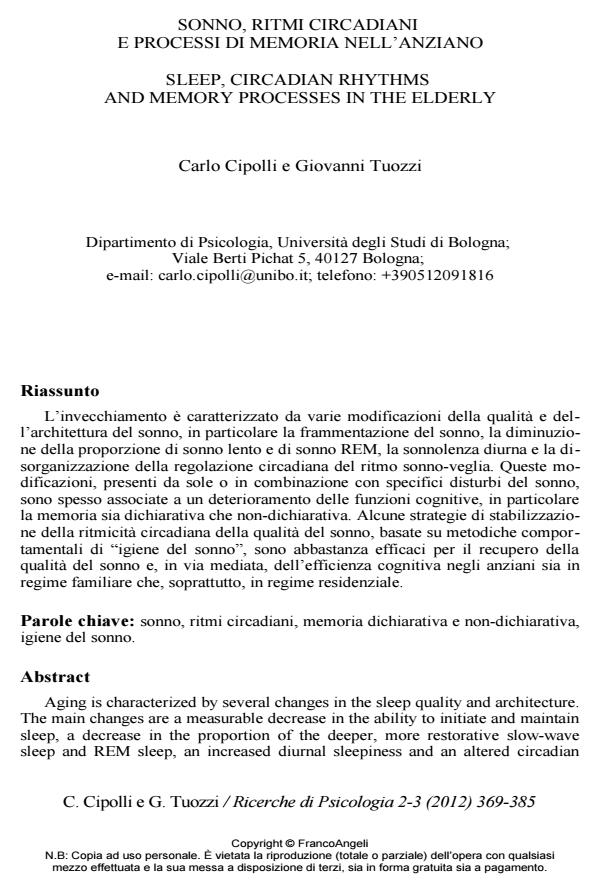Sleep, circadian rhythms and memory processes in the elderly
Journal title RICERCHE DI PSICOLOGIA
Author/s Carlo Cipolli, Giovanni Tuozzi
Publishing Year 2013 Issue 2012/2-3
Language Italian Pages 17 P. 369-385 File size 474 KB
DOI 10.3280/RIP2012-002015
DOI is like a bar code for intellectual property: to have more infomation
click here
Below, you can see the article first page
If you want to buy this article in PDF format, you can do it, following the instructions to buy download credits

FrancoAngeli is member of Publishers International Linking Association, Inc (PILA), a not-for-profit association which run the CrossRef service enabling links to and from online scholarly content.
Aging is characterized by several changes in the sleep quality and architecture. The main changes are a measurable decrease in the ability to initiate and maintain sleep, a decrease in the proportion of the deeper, more restorative slow-wave sleep and REM sleep, an increased diurnal sleepiness and an altered circadian cycle of wake-sleep. These changes per se, or in association with specific sleep disorders, are often accompanied by impairments in cognitive functions, overall declarative and non-declarative memory. Some strategies based on behavioural techniques have proved to be fairly effective - per se or in association with chrono-, photo- or pharmacological therapies- to maintain or recover the sleep organization and the circadian rhythm of wake-sleep and, in turn, the cognitive functioning in home- and (overall) community-dwelling elderly.
Keywords: Sleep, circadian rhythms, declarative and non-declarative memory, sleep hygiene.
- La psicologia dell'invecchiamento Rabih Chattat, in RICERCHE DI PSICOLOGIA 2/2021 pp.285
DOI: 10.3280/rip2021oa12613
Carlo Cipolli, Giovanni Tuozzi, Sonno, ritmi circadiani e processi di memoria nell’anziano in "RICERCHE DI PSICOLOGIA " 2-3/2012, pp 369-385, DOI: 10.3280/RIP2012-002015